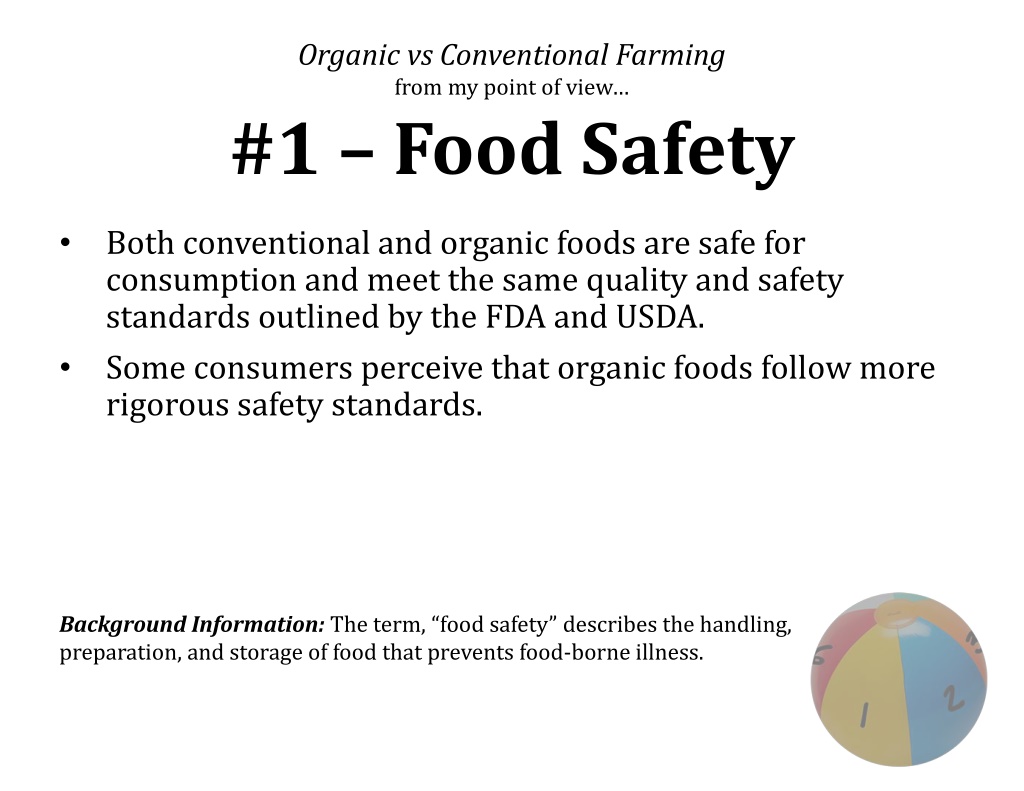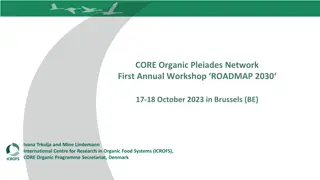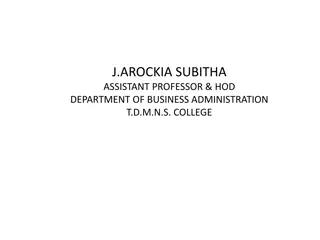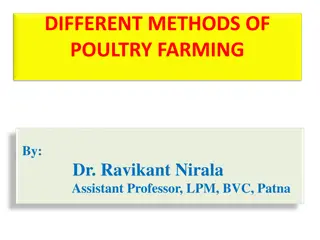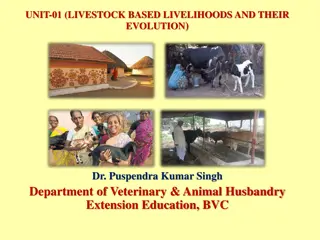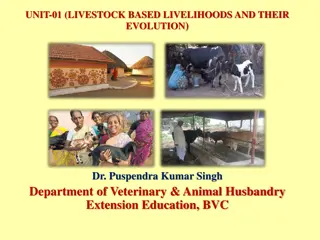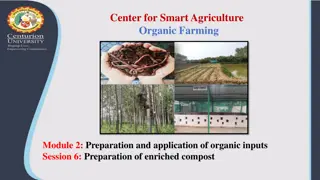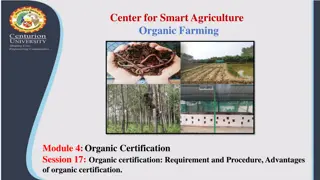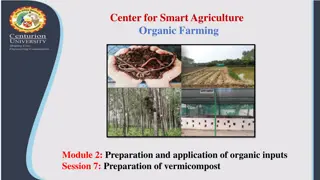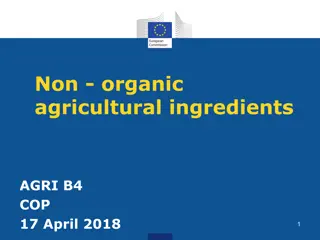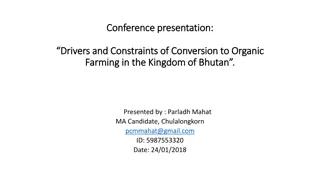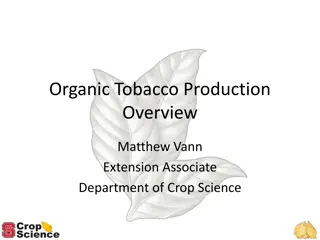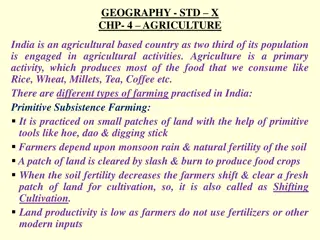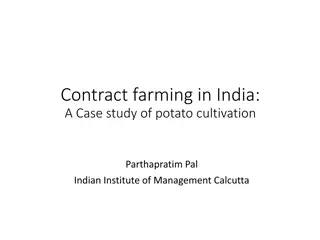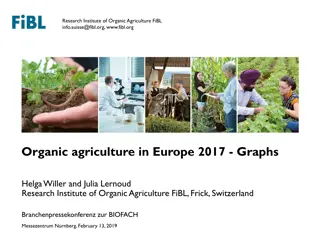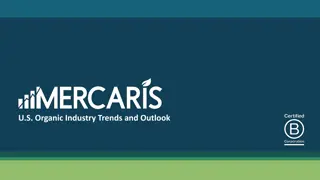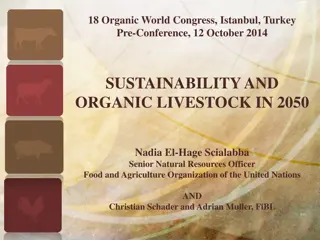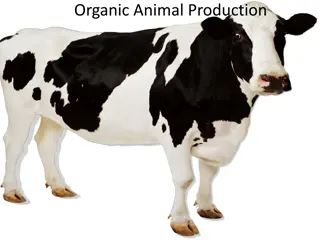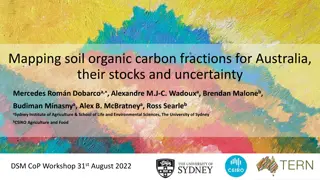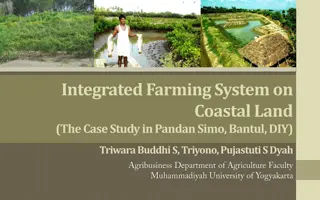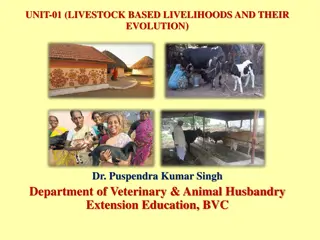Organic vs Conventional Farming: An Overview
In the debate between organic and conventional farming, both methods have their pros and cons. While organic foods are perceived to follow stricter safety standards, both types meet FDA and USDA regulations. They offer similar nutritional value, but organic farming tends to have lower efficiency due to various factors. Conventional farming is considered more efficient and cost-effective, although it may have a higher environmental impact. Organic foods usually come at a higher cost due to expensive farming practices.
Download Presentation

Please find below an Image/Link to download the presentation.
The content on the website is provided AS IS for your information and personal use only. It may not be sold, licensed, or shared on other websites without obtaining consent from the author. Download presentation by click this link. If you encounter any issues during the download, it is possible that the publisher has removed the file from their server.
E N D
Presentation Transcript
Organic vs Conventional Farming from my point of view #1 Food Safety Both conventional and organic foods are safe for consumption and meet the same quality and safety standards outlined by the FDA and USDA. Some consumers perceive that organic foods follow more rigorous safety standards. Background Information: The term, food safety describes the handling, preparation, and storage of food that prevents food-borne illness.
Organic vs Conventional Farming from my point of view #2 Nutrition Organic and conventionally-produced foods contain the same nutrients. For example, the Nutrition Facts label for an organic apple would be identical to the Nutrition Facts label for a conventionally produced apple. Some consumers perceive that organic foods are more nutritious. Background Information: When evaluating the nutritional value of a food the elements of consideration include measuring vitamins, minerals, calories, fat, etc.
Organic vs Conventional Farming from my point of view #3 Efficiency Overall yields on organic farms are lower than that of comparable conventional farms. The causes for lower yields on organic farms vary, but include: Lower soil nutrient availability. Higher incidence of disease. More damage and loss from pests. Background Information: Efficiency is the ratio of output compared to the input. On a wheat farm, efficiency can be measured by the bushels of wheat that are harvested per acre. If the acreage stays the same, but the bushels of wheat increases due to a change in seed variety, weed control, or irrigation, efficiency increases. Limits on soil nutrients (fertilizer), pesticides, and seed varieties may also limit the efficiency of organic farms.
Organic vs Conventional Farming from my point of view #4 Environment It is best for the environment to farm as efficiently as possible. Conventional farming is more efficient. Fertilizers used to supplement soil nutrients have a high carbon footprint. Organic farms cannot use synthetic fertilizers. Specific farming practices such as no-till farming decrease carbon emissions that contribute to climate change. However, these practices are used in both organic and conventional-style farming. Background Information: Evaluating the overall environmental impact of organic agriculture vs conventional agriculture is difficult to quantify and research is still in progress.
Organic vs Conventional Farming from my point of view #5 Cost Most organic food costs more than its conventional counterpart. Background Information: Higher prices for organic foods are due to more expensive farming practices. Farms certified as organic follow different regulations which can cost the farmer more.
Organic vs Conventional Farming from my point of view #6 Pesticides Both conventional and organic farms can use pesticides to control weeds and unwanted pests in their crops. Organic farms have fewer options for pesticides than conventional farms. All pesticides are controlled by the EPA (Environmental Protection Agency) and undergo scientific evaluation to ensure that when used as directed, they don t harm people, non-target species, or the environment. Background Information: The word pesticide is a blanket term used for a substance that destroys harmful or unwanted organisms (such as weeds and insects). Specifically, a pesticide kills pests and herbicides kill unwanted plants (weeds). Both weeds and pests damage and destroy crops, decreasing the quality and yield of a harvested crop.
